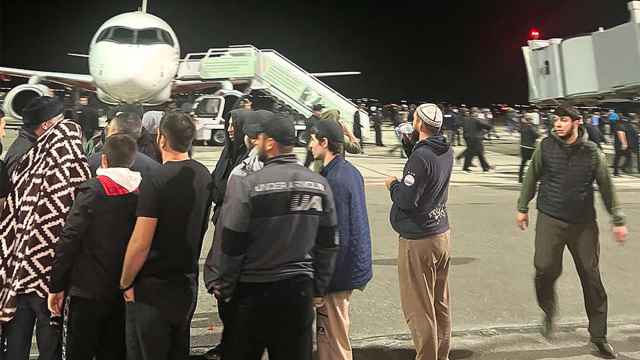A former commander of a Federal Security Service paramilitary group who served in Chechnya, which fought two separatist wars against Moscow since the breakup of the Soviet Union, was appointed Thursday to head the newly established Federal Agency for Ethnic Affairs.
Igor Barinov, who is currently a State Duma deputy for the ruling United Russia party, was appointed to the post by Prime Minister Dmitry Medvedev.
"You are an experienced person," Medvedev told Barinov, a former member of the notorious Alpha Group special forces unit, according to a transcript of their meeting released by the government. "You have contacts with regional leaders and I hope that your past experience will help," the prime minister said.
On the same day, Medvedev signed a decree allocating 338 million rubles ($6 million) to 43 of Russia's 83 regions to "strengthen the unity of the Russian nation," Interfax reported. Of these funds, 205 million rubles will go toward the strengthening of civil unity and the harmonization of interethnic relations, and 133 million rubles toward the support of ethnic minorities native to Russia, the news agency reported.
The multiethnic southern republic of Dagestan, where the authorities have been battling a low-simmering Islamist insurgency for the past few years, will get one of the largest portions of funding, Interfax reported. Dagestan was listed as one of the areas with the highest level of tension in Russia in an October 2014 report on ethnic conflicts by the Center for National Conflicts, a Moscow-based think tank.
The Federal Agency for Ethnic Affairs was established Tuesday by an executive order signed by President Vladimir Putin in what analysts said was a bid to prevent possible exploitation of ethnic tensions by foreign powers and domestic opposition.
A Message from The Moscow Times:
Dear readers,
We are facing unprecedented challenges. Russia's Prosecutor General's Office has designated The Moscow Times as an "undesirable" organization, criminalizing our work and putting our staff at risk of prosecution. This follows our earlier unjust labeling as a "foreign agent."
These actions are direct attempts to silence independent journalism in Russia. The authorities claim our work "discredits the decisions of the Russian leadership." We see things differently: we strive to provide accurate, unbiased reporting on Russia.
We, the journalists of The Moscow Times, refuse to be silenced. But to continue our work, we need your help.
Your support, no matter how small, makes a world of difference. If you can, please support us monthly starting from just $2. It's quick to set up, and every contribution makes a significant impact.
By supporting The Moscow Times, you're defending open, independent journalism in the face of repression. Thank you for standing with us.
Remind me later.





